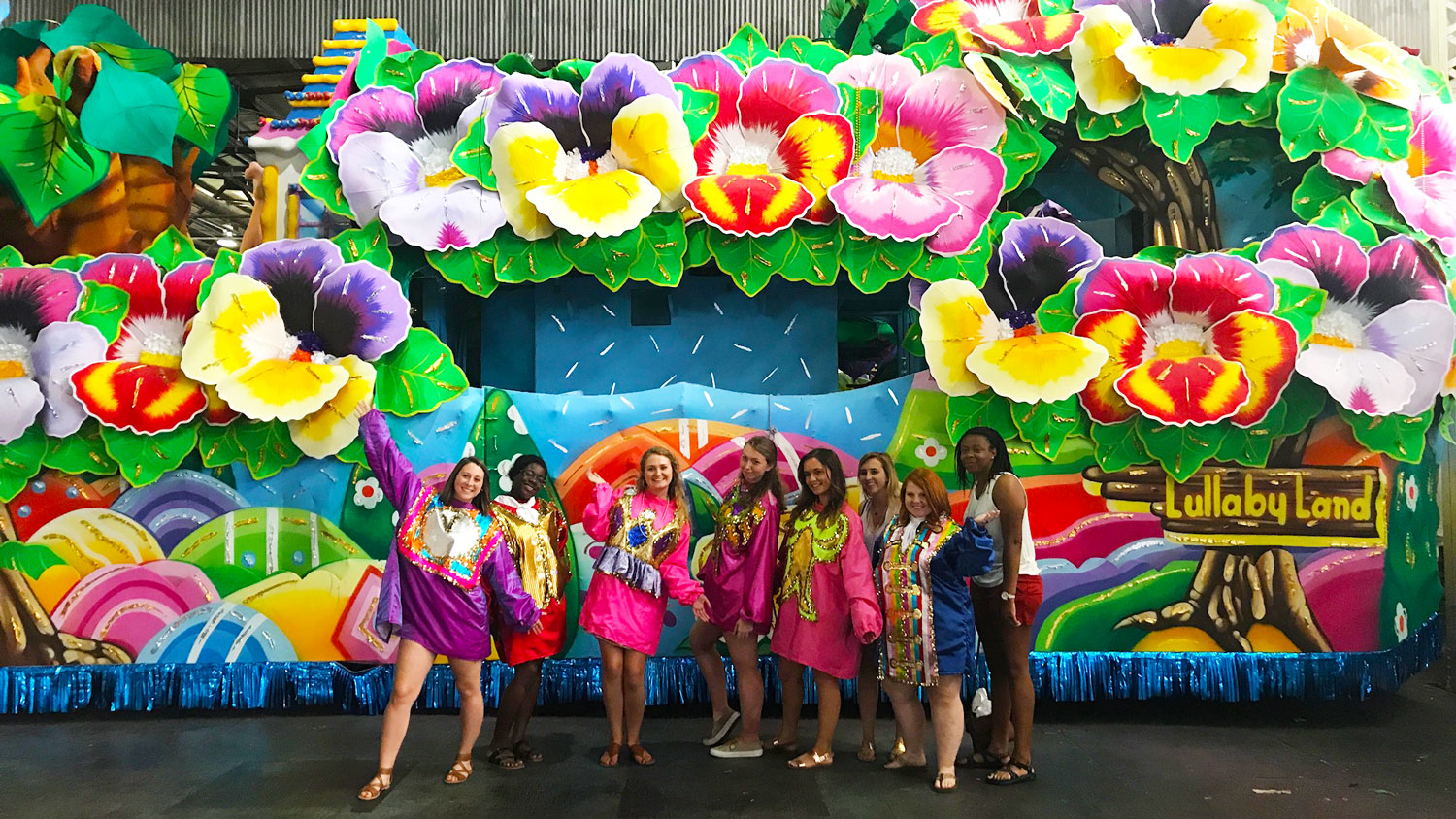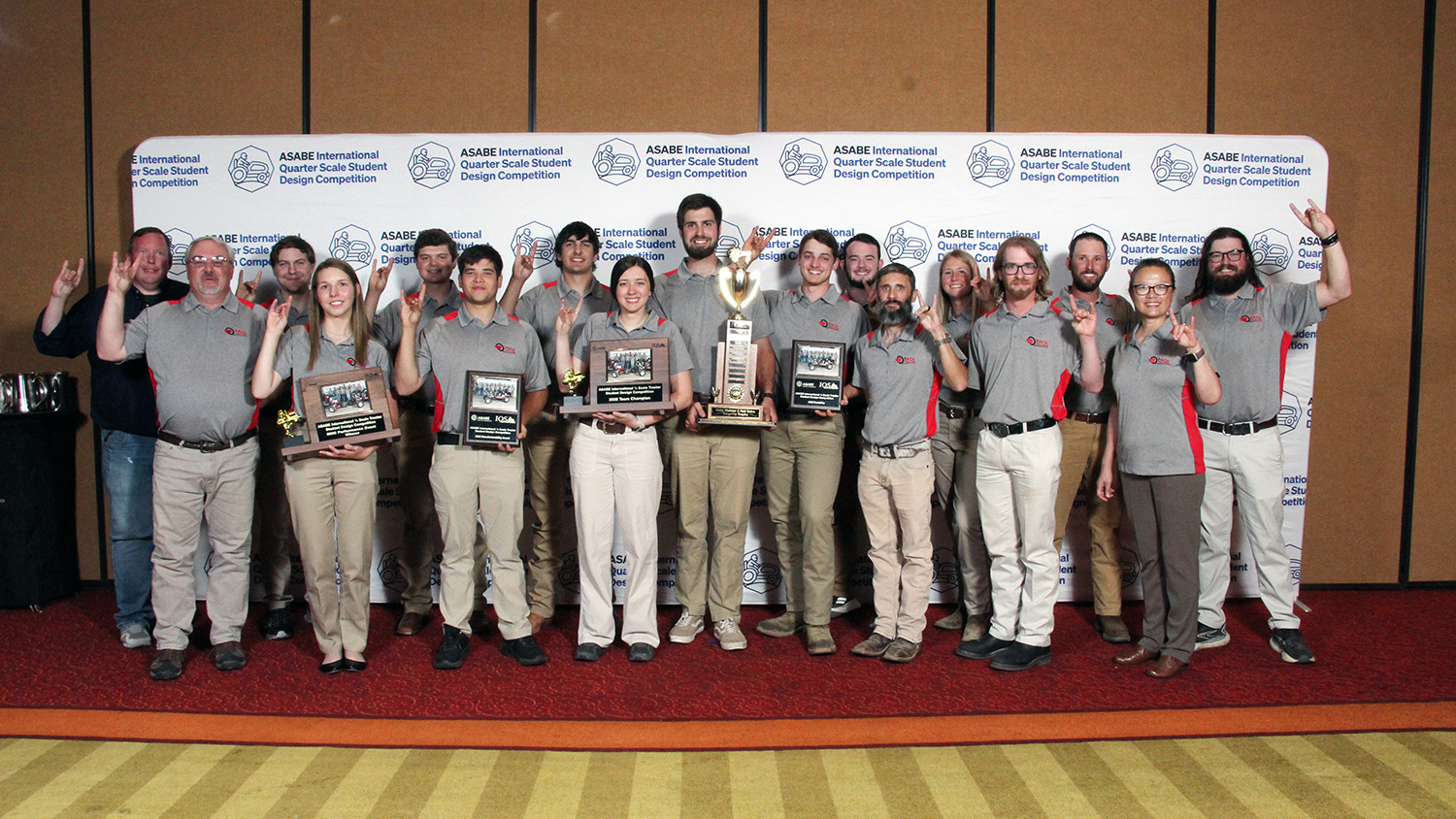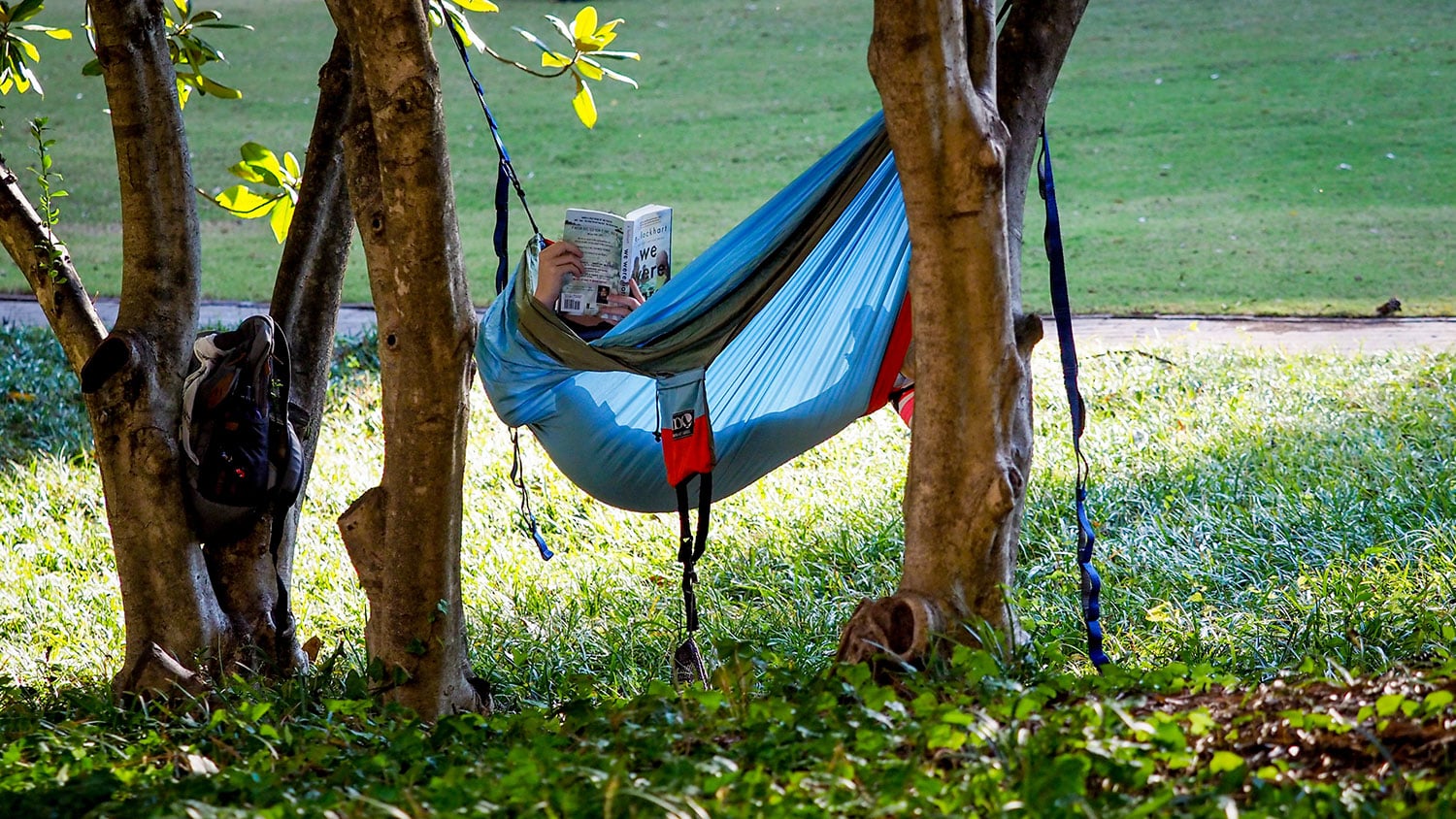Kayleigh-Scarlett Hopper, a rising senior in elementary education, took a course about student cultures and diversity in the classroom this past semester. This May she saw what she learned in action when she and seven other undergraduate students in the College of Education traveled to New Orleans, Louisiana, with two faculty members. The cultural immersion trip was designed to help them better understand the role culture plays in education and how major events and catastrophes can affect a school system.
Over four days, they talked with researchers at the Cowen Institute for Public Initiatives about the impact Hurricane Katrina still has on local education and the workforce. They met with University of New Orleans faculty members. They visited three charter schools. And they explored the vibrant city to experience New Orleans’ rich culture firsthand.
What stood out to Hopper: just how different the New Orleans school system is from North Carolina’s. In the post-Katrina era, for example, New Orleans is primarily a charter school system. Instead of placing students in schools based on their addresses, a computer algorithm places students into charter schools based on student assessments and family preference.
“This trip showed me how different school systems can be and prepared me to enter any school system open-minded in the future,” Hopper said. “I think it also prepared me to be more flexible when applying to jobs and when I am teaching.”
The cultural immersion trip and school visits also showed how New Orleans culture is incorporated into education, whether it’s through mathematics word problems about beignets or the emphasis on arts-related elective classes. “The school visits taught me how important a student’s culture is to them, and that a classroom should recognize these cultures,” Hopper said.
Jenni Davis, a junior in elementary education, appreciated the new perspective that meetings with University of New Orleans professors and Cowen Institute researchers provided. “I am now able to better understand how the aspects of transportation, funding, testing, applications and performance grades all play important roles in school systems,” she said.
The free time to explore New Orleans was also essential. There was music, dancing, juggling or some other form of entertainment on every corner, Davis said. “Just walking through the French Quarter was valuable. We were able to fully engage in and appreciate the culture in the area, but we were also able to see the effects that Katrina had on the city.”
Moving forward, the College of Education hopes to continue providing trips like these for students, said Regina Gavin Williams, the college’s director for student engagement and diversity coordinator who organized the trip with Tiffany Davis, a teaching assistant professor of higher education.
Cultural immersion programs are especially important for pre-service teachers because participants gain fresh perspectives on education, student Jenni Davis said. “Trips like these allow us to think about many different aspects of schooling systems. Learning about all of these different views will help me in the future when it is my turn to find a school that I will call home, and it will help me make a positive impact on our school systems.”
This post was originally published in College of Education News.
- Categories:



